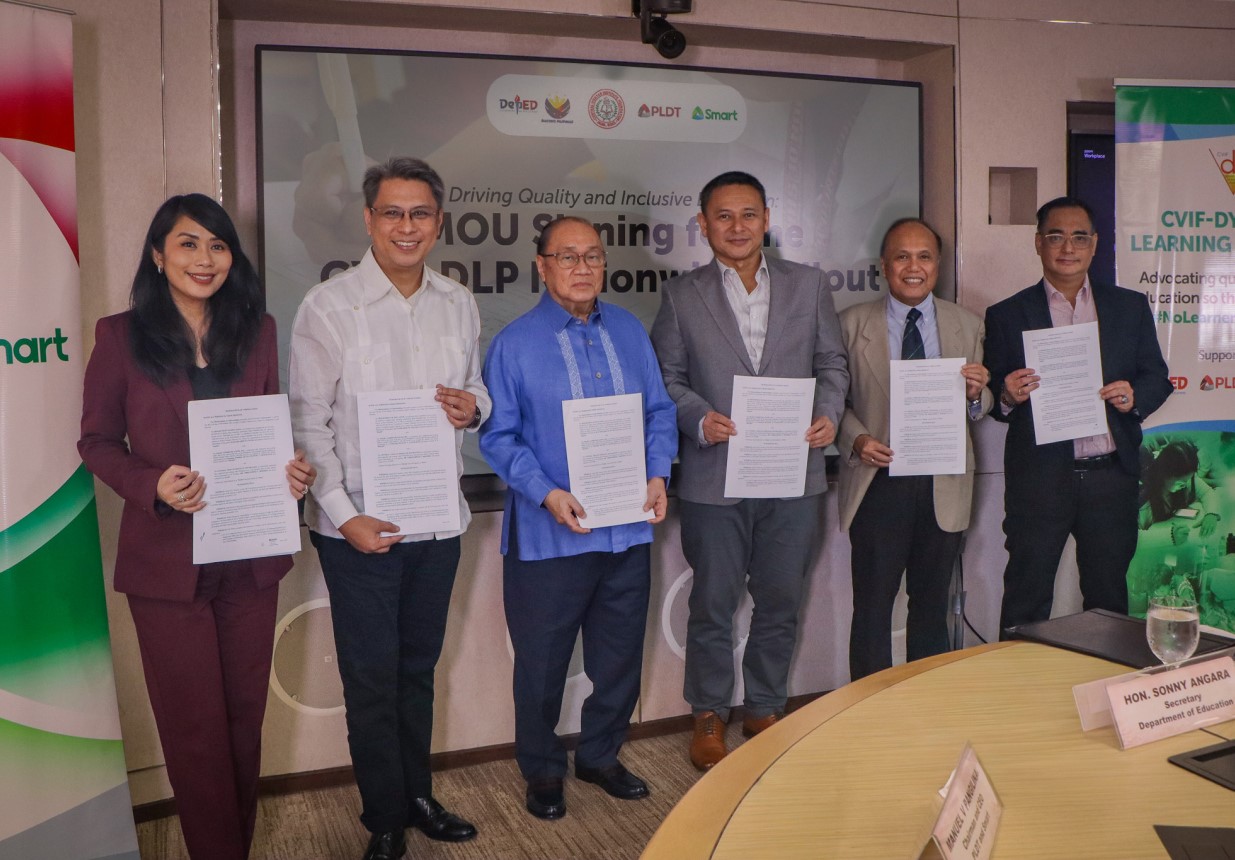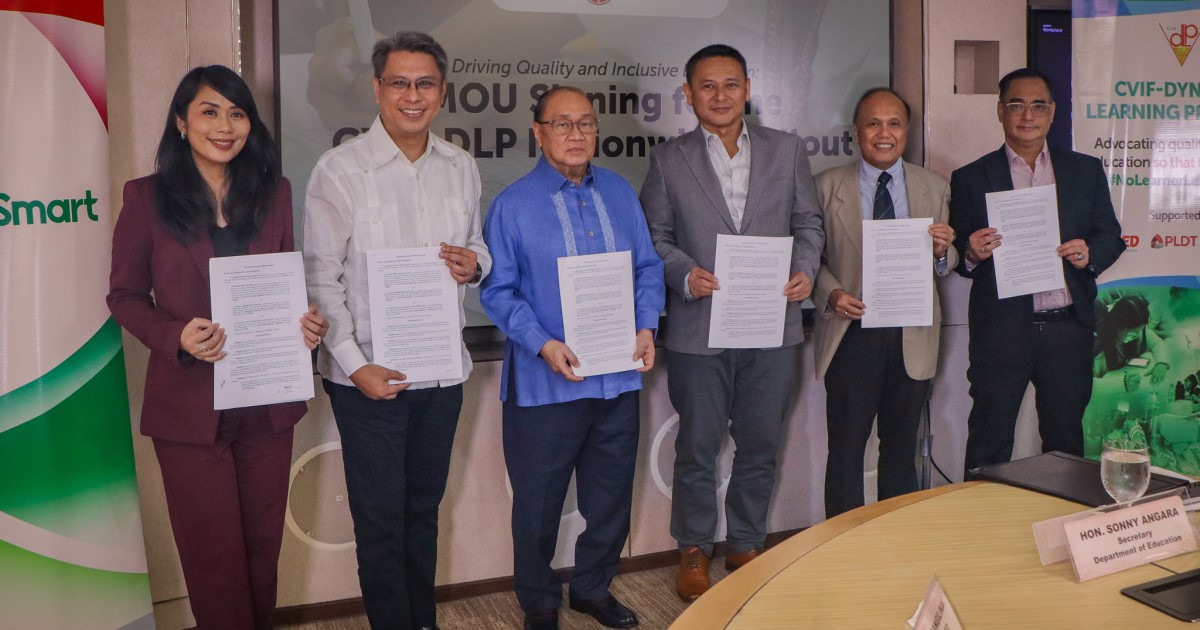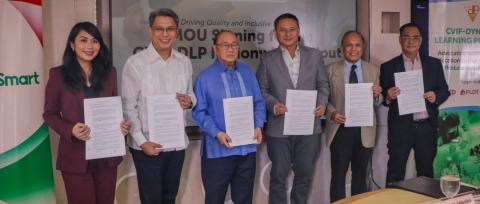
With the number of disasters and crises that typically disrupt education in the Philippines, stakeholders must collaborate and put in place systems that will ensure learning continuity during calamities and emergencies.
The Department of Education (DepEd), together with PLDT Inc. (PLDT) and Smart Communications, Inc. (Smart) and the Central Visayan Institute Foundation (CVIF), are strengthening their collaboration by signing a Memorandum of Understanding (MOU) to roll out the CVIF-Dynamic Learning Program (CVIF-DLP), an innovative teaching strategy designed to develop independent learners.
The program will serve as an alternative learning delivery method during disruptive events. On average, around 20 tropical cyclones visit the Philippines annually causing class disruptions. In Schoolyear 2023-2024, weather disruptions caused schools to lose around 32 teaching days.
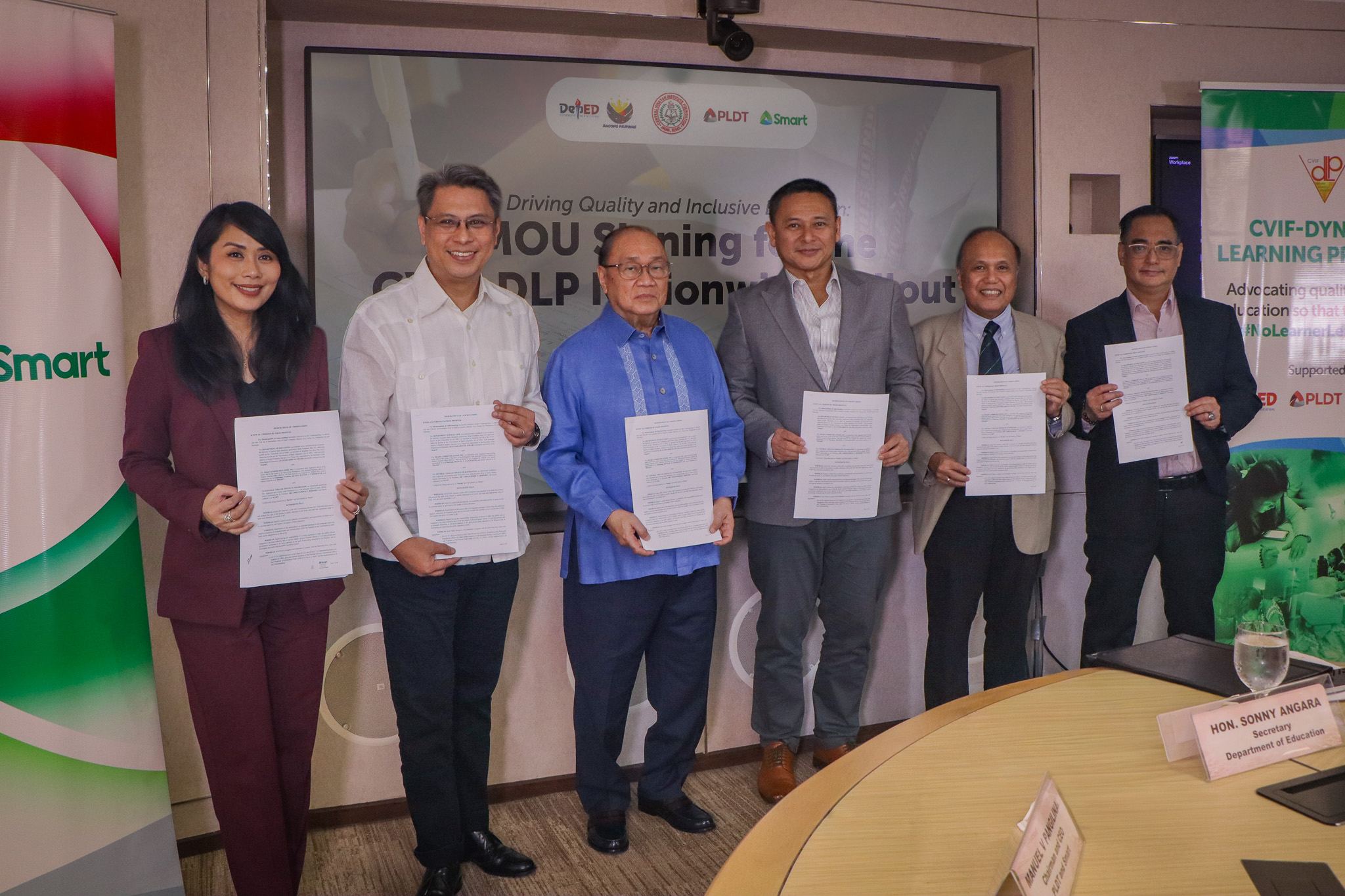
“The agreement with DepEd will widen access to this proven learning solution, which was conceptualized, tested, and proven effective right here in the Philippines,” said Manuel V Pangilinan, Chairman and CEO of PLDT. “We’re honored to be part of this consequential initiative, and we thank the DepEd and CVIF for welcoming us in this partnership.”
Developed by Ramon Magsaysay Awardees Dr. Chris Bernido and his late wife, Dr. Marivic Carpio-Bernido, the CVIF-DLP utilizes curated modules called the Learning Activity Sheets (LAS) that break down complex concepts into manageable bite-sized lessons. Teachers are trained to come up with single-page activity sheets to help students master the fundamentals before progressing to more advanced topics.
“Unique to the CVIF-DLP is the writing part where students copy the LAS before answering them,” said Dr. Bernido. “This helps students retain information better. Answering the LAS at their own pace also lessens the pressure of having to finish an activity within a specified time and get all the questions correctly.”
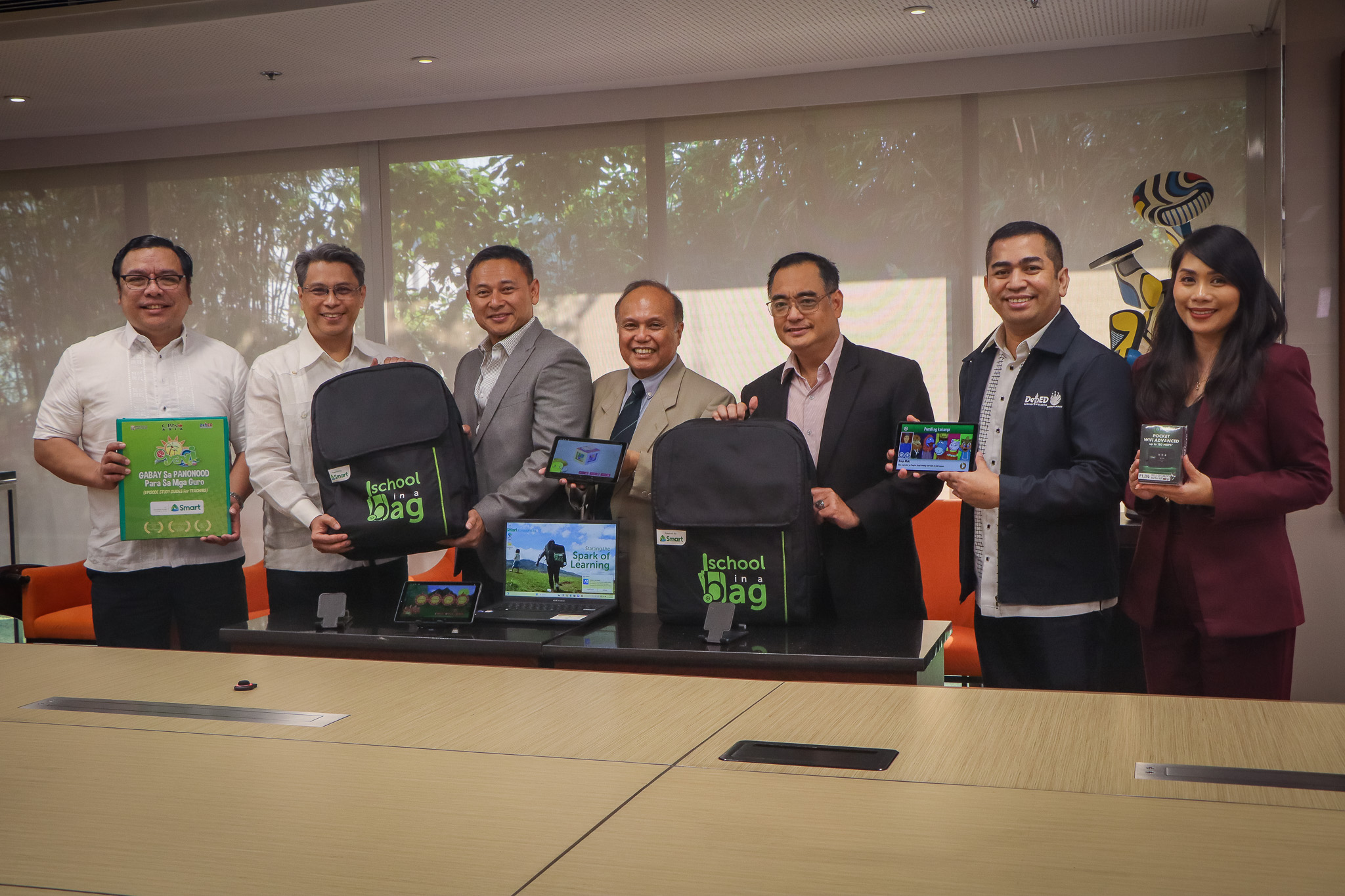
In a typical CVIF-DLP class, students spend 80% of their time working independently on the assigned module, while the remaining 20% is reserved for teacher intervention. This model enables teachers to manage up to three classes simultaneously – ideal for schools facing teacher shortage.
Prior to the formal signing, the DepEd, with the help of PLDT, Smart and CVIF, has been laying the groundwork for the integration of the Dynamic Learning Program in schools across the country.
Earlier this year, the DepEd’s training and development arm – National Educators Academy of the Philippines (NEAP) – together with the agency’s Bureau of Learning Delivery have refined training methods and expanding the CVIF-DLP Learning Activity Sheets repository for its pilot implementation of the innovative teaching strategy in more than 450 schools across the Philippines. The list may further expand to accommodate institutions affected by calamities.
Ahead of the nationwide rollout of the CVIF-DLP, several DepEd divisions have embraced the program and have customized it to fit their needs. For instance, the Sarangani schools division office in SOCCSKSARGEN has developed region-specific modules that also take into consideration the area’s unique cultural heritage and diverse indigenous population.
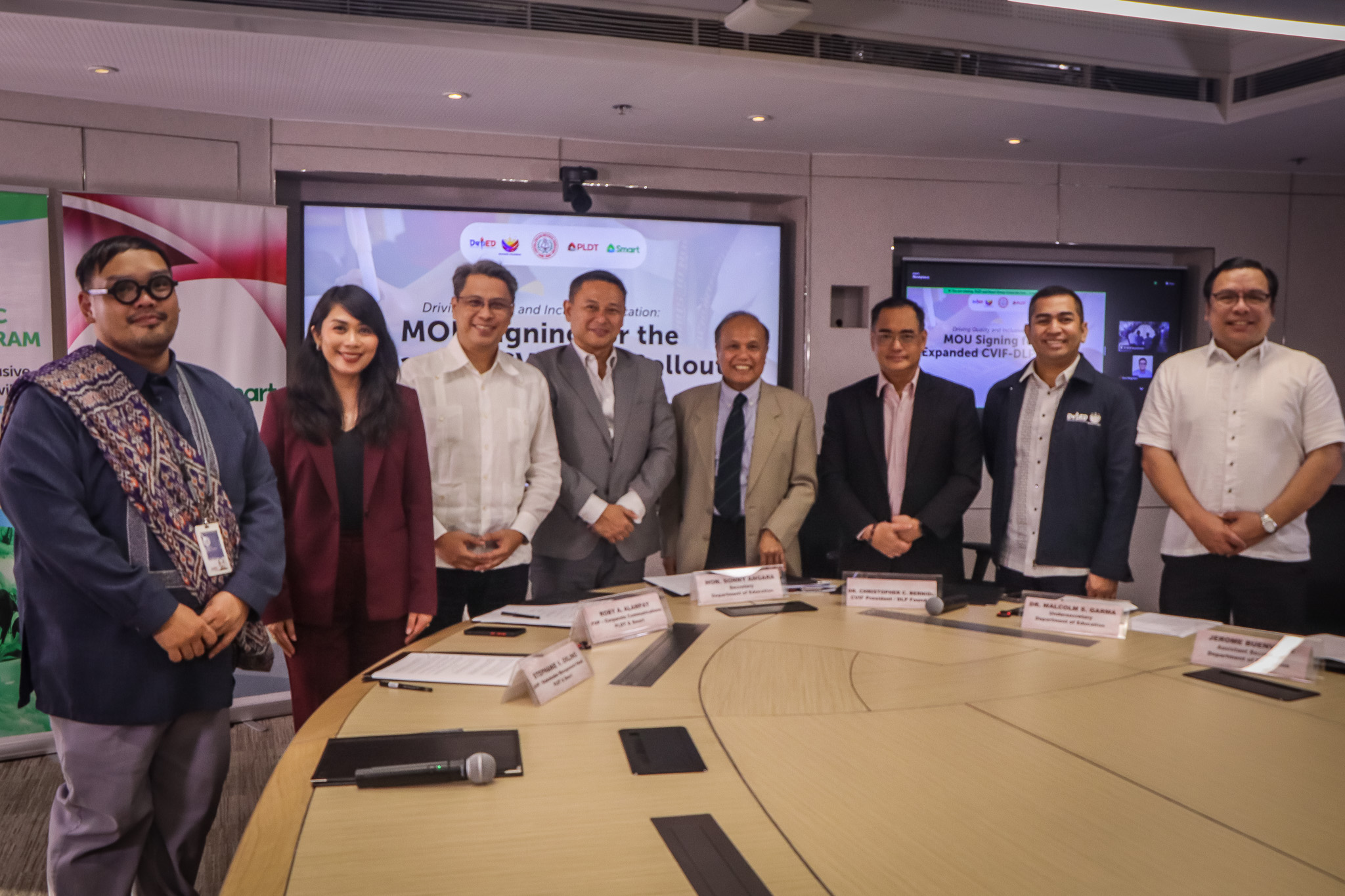
The CVIF-DLP is also being adapted for community-based learners under the DepEd’s Alternative Learning System (ALS). ALS programs in Cagayan de Oro and La Union have developed their own modules to complement the unique circumstances of their students.
PLDT and Smart have supported the CVIF-DLP since 2010. Over the years, the PLDT Group has helped the Bernidos scale the crisis-resilient pedagogy nationwide – training more than 32,000 teachers. More than a thousand schools, both public and private, have implemented the program in elementary, secondary, and tertiary levels.
“Investing in our youth is a sound business decision,” said Stephanie V. Orlino, AVP and Head of Public Engagement at PLDT and Smart. “Because when we empower a young person to read, to think critically, to dream boldly — we do more than just build a nation. We transform the world.”
The initiative supports the DepEd’s MATATAG curriculum and contributes to the country’s progress toward United Nations Sustainable Development Goal 4: Quality Education.
